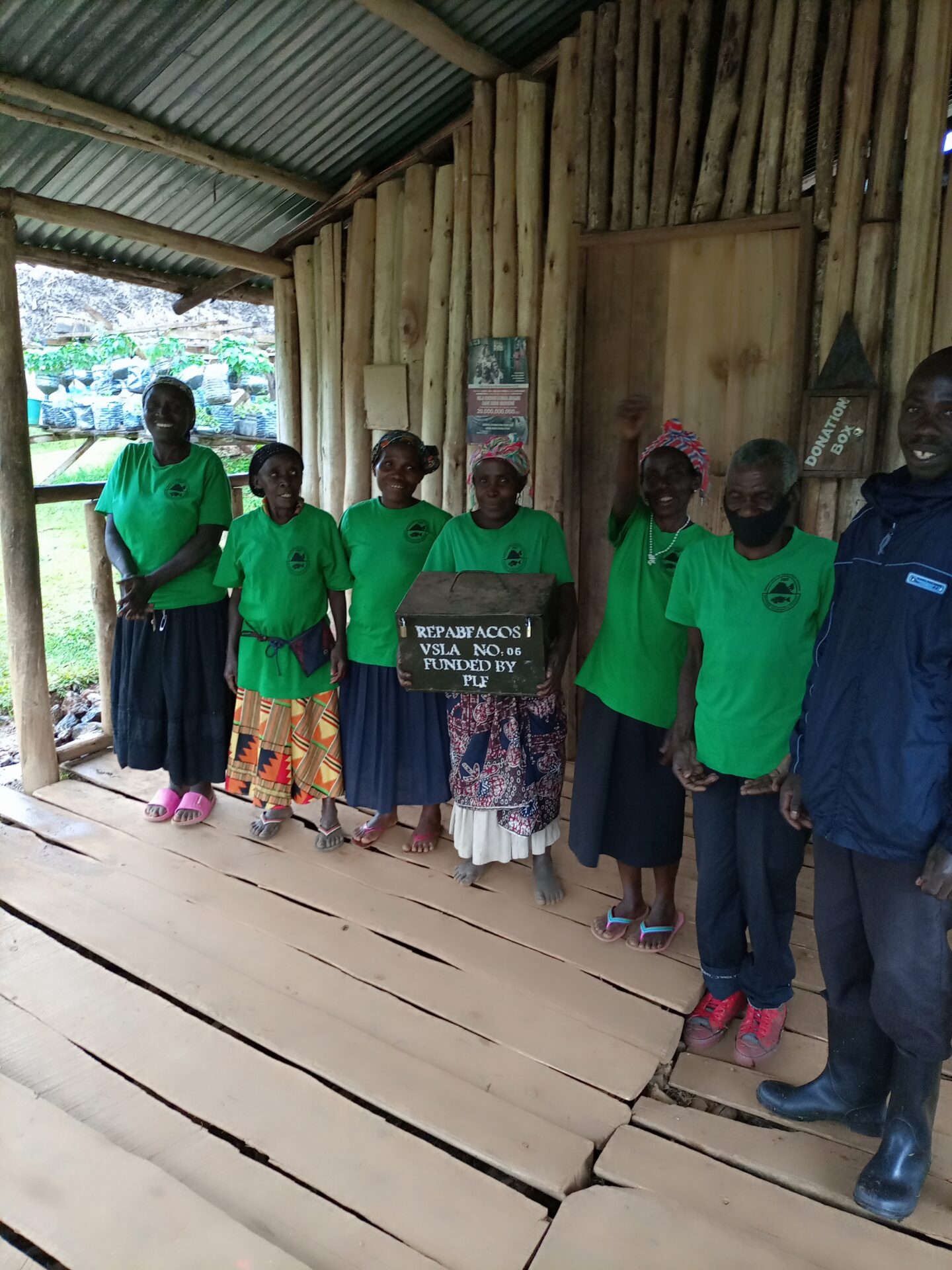Reformed Poachers and Batwa Farmers’ Cooperative Society.
CIBIC started Reformed Poachers and Batwa Farmers’ Cooperative Society Limited (REPABFACOS) in 2019 to enable its members who finish training at the training have access to revolving seed loans. REPABFCOS is a company limited by shares with registration number p.9976/RCS under the ministry of trade, industry and cooperatives. REBAPFCOS therefore enables access to seed loans, distribution and marketing of member’s products, enhance farmer-to-farmer centered learning for poverty and hunger free cooperative members. The society mainly works with reformed poachers, Batwa pygmies and communities neighboring the Bwindi Impenetrable National park. The cooperative society developed the idea to help farmers financially through Village Savings and Loans Associations (VSLAs) farmer support model. In this VSLA farmer support model, People with no capacity to get loans from financial institutions directly because of lending policies can be supported. These include Batwa Pygmies, Women and Reformed poacher members that form VSLAs and some are individual shareholders. As at 31st December, 2021, REPABFOS had 215 shareholders and 33 VSLAs.
The cooperative is now expansion level. Reformed Poachers and Batwa Farmers’ Cooperative Society (REPABFCOS) LIMITED is proposing to expand on her business of producing beans and maize through Village Savings and Loans Associations (VSLA). This development will supplement on existing financial seed loan support program to include supply of improved beans and maize seeds and other production tools and offer technical advice to farmers. This opportunity will allow farmers to be able to address their production limitations and challenges and start producing food that will enable them earn an income from farming. The cooperative is in the process of procuring a maize milling factory to add value to the maize being produced by the farmers and increase sales.
This business addresses a number of challenges for both the farming VSLA members and cooperative shareholders and customers. It also creates cooperative sustainability and self-dependency. To the environment, it relieves our farmers from extreme poverty and hunger thus reducing the need for hunting and poaching but instead concentrating on farming as an alternative livelihood activity. The cooperative wishes to address the challenge of lack of sourcing challenges currently faced by our target customers in communities around park edges and the governmental institutions around like Uganda Wildlife Authority and Army barracks around. We have researched about the possibility of engaging these institutions and the responses are that there is a high need for a local competent supplier. There is also the untapped huge market from farmers themselves. Because they have families and the staple food is posho and beans, they usually source this from outside when sometimes suppliers don’t deliver when calamities occur. The schools and tourist camps all need this service but challenged by lack of competed supplier, that is why they are still sourcing from Kampala and big food sourcing companies in the region.

